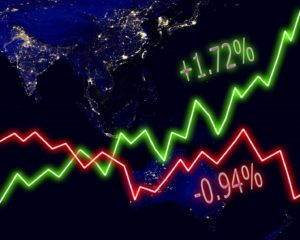On Wednesday, oil prices remained high as traders anticipated a report of low US crude inventories.
The West Texas Intermediate futures gained 1.02% or 1.21 points to $120.70 per barrel. This jump came after reaching its highest settlement since March 8 in the previous session.
Similarly, Brent crude contracts rose 0.95% or 1.13 points to $121.68 per barrel. The international benchmark closed on Tuesday at the highest since May 31.
Market participants highly expected the oil data for last week to show another drawdown of US crude inventories. Meanwhile, gasoline and distillate stocks could edge higher.
Analysts explained that the forecast is possible as the driving season and vacationing heats up. Correspondingly, they projected the oil market to remain tight.
However, figures from the American Petroleum Institute contrasted their outlook. Subsequently, the report revealed that US crude stockpiles grew by 1.85 million barrels last week. Consequently, distillates, a category that includes diesel, climbed by 3.38 million barrels.
Nevertheless, the gain would unlikely provide much relief to a tight oil market as stocks are at the lowest seasonal level in nine years.
Investors now look forward to the Energy Information Administration (EIA) report later this day.
Oil prices remained supported by economic rebound
Moreover, this year, oil prices have maintained their upward momentum as economies rebounded from the pandemic.
However, Russia’s invasion of Ukraine has triggered extreme volatility. Moscow also has fueled inflation, driving up the cost of food to fuels.
Experts noted that the Kremlin had cut about 500,000 to 700,000 barrels per day of oil product exports due to the West sanctions. In line with this, the country now finds marketing fuel difficult.
Consequently, Beijing is gradually rolling back its COVID-19 curbs as infection rates ease. The further opening of the world’s second-largest economy offers higher oil demand, underlining price hikes.
Meanwhile, the World Bank on Tuesday reduced its global growth forecast for 2022 by nearly a third. The financial institution warned that many countries could face risks of a recession.











